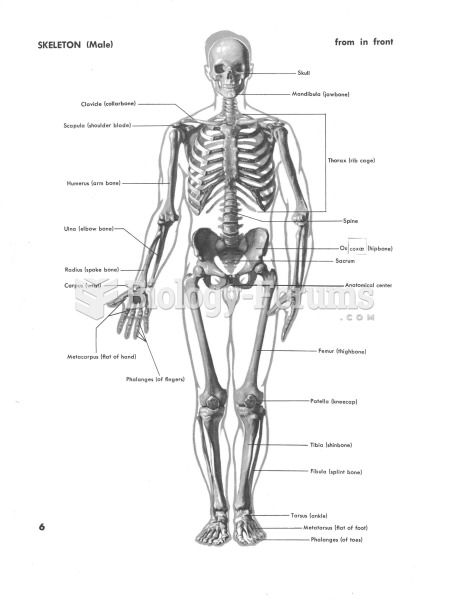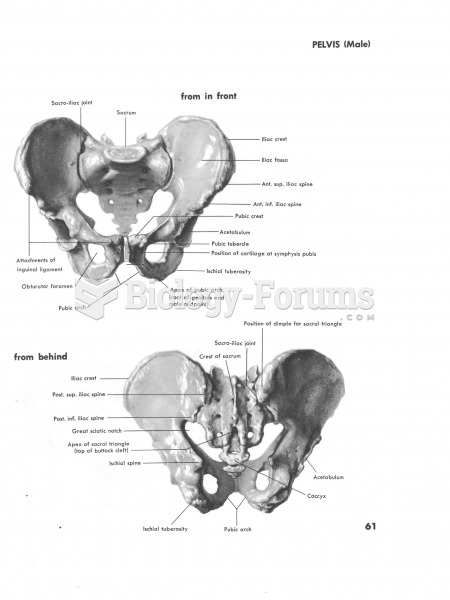|
|
|
There are 60,000 miles of blood vessels in every adult human.
If all the neurons in the human body were lined up, they would stretch more than 600 miles.
Approximately 500,000 babies are born each year in the United States to teenage mothers.
It is believed that the Incas used anesthesia. Evidence supports the theory that shamans chewed cocoa leaves and drilled holes into the heads of patients (letting evil spirits escape), spitting into the wounds they made. The mixture of cocaine, saliva, and resin numbed the site enough to allow hours of drilling.
Side effects from substance abuse include nausea, dehydration, reduced productivitiy, and dependence. Though these effects usually worsen over time, the constant need for the substance often overcomes rational thinking.







